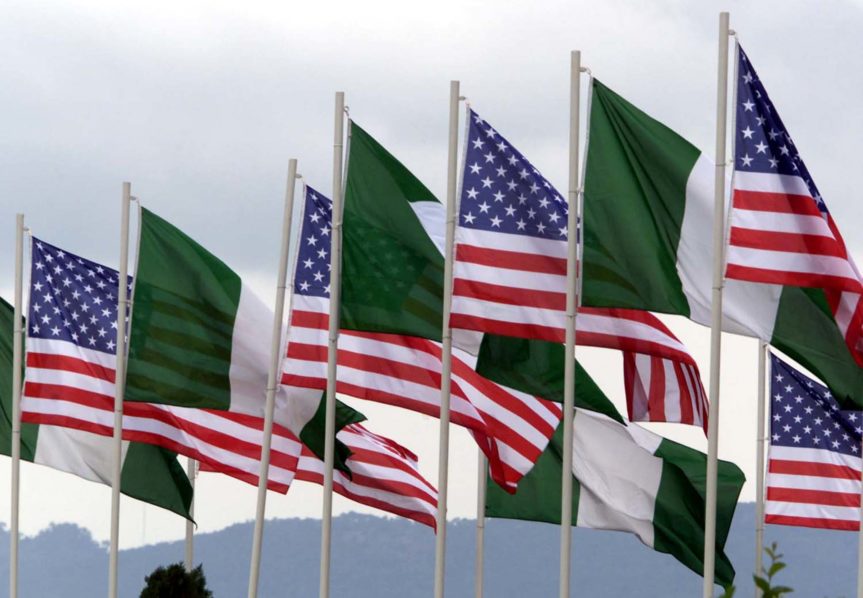LAGOS, Nigeria – The United States Ambassador to Nigeria, Richard Mills, has announced a renewed American commitment to boosting trade, investment, and private sector collaboration with Nigeria, describing the country as a critical partner in Africa’s economic future.
Ambassador Mills made this known during a policy address and fireside chat held at the Lagos Business School, where he spoke on the topic: “Toward a Robust U.S.-Nigeria Commercial and Investment Partnership.” The U.S. envoy revealed that Nigeria was America’s second-largest trade partner in Africa in 2024, with a total two-way trade in goods and services valued at $13 billion.
He added that this figure highlights Nigeria’s central role in U.S. foreign economic policy in the region, stressing that the United States was committed to deepening its commercial ties with Nigeria and the broader African continent under the administration of President Donald Trump.
“In terms of actual investment, the United States remains one of Nigeria’s top foreign investors, with foreign direct investment (FDI) rising to $6.5 billion in 2023, up by 5.5% from 2022,” Mills said.
The ambassador noted that the new commercial diplomacy strategy launched by the U.S. Department of State for sub-Saharan Africa marked a “new chapter” in U.S.-Africa relations. He explained that the strategy focuses on expanding economic opportunities, supporting long-term prosperity, and promoting stronger private sector participation across the region.
He also disclosed that the U.S. Department of Commerce had signed a Commercial and Investment Partnership (CIP) with Nigeria’s Ministry of Industry, Trade, and Investment, which will guide bilateral engagement over the next five years. The agreement will focus on three priority sectors identified by the Nigerian government: agriculture, digital economy, and construction.
Mills said the deal was part of efforts to increase business-to-business linkages and encourage private sector growth, particularly in sectors with the capacity to generate jobs and promote inclusive development.
“We want to support Nigerian entrepreneurs, innovators, and businesses to connect with American investors and technology,” he added. “Through this partnership, we aim to unlock opportunities that are mutually beneficial for both nations.”
Speaking further, Mills highlighted the strong people-to-people ties between both countries, noting that Nigerians make up the largest African diaspora group in the United States, with over 750,000 people of Nigerian descent living in America. He said this connection forms a powerful bridge for cultural exchange, business development, and educational cooperation.
“These deep bonds of family, education, business, and culture truly underscore why Nigeria is important to U.S. policy objectives in Africa,” Mills said.
He also assured that under his leadership as ambassador, strengthening the U.S.-Nigeria economic relationship would remain a top priority.
The U.S. government’s shift in strategy comes at a time when Nigeria is seeking to attract more foreign investment to support its economic reforms and reduce dependence on oil exports. Sectors like agriculture, infrastructure, ICT, and renewable energy are seen as key drivers of long-term growth.
Analysts believe the renewed partnership could open up new trade and export channels, especially for Nigerian small and medium-scale enterprises (SMEs) looking to access the global market.
The U.S. has also maintained support for Nigeria through agencies like the United States Agency for International Development (USAID) and the U.S. International Development Finance Corporation (DFC), both of which are involved in development financing and private sector support projects across Nigeria.
As both countries work towards stronger economic ties, expectations are high that the Commercial and Investment Partnership will lead to real economic impact, including the creation of jobs, technology transfer, and improved access to markets for Nigerian products.
